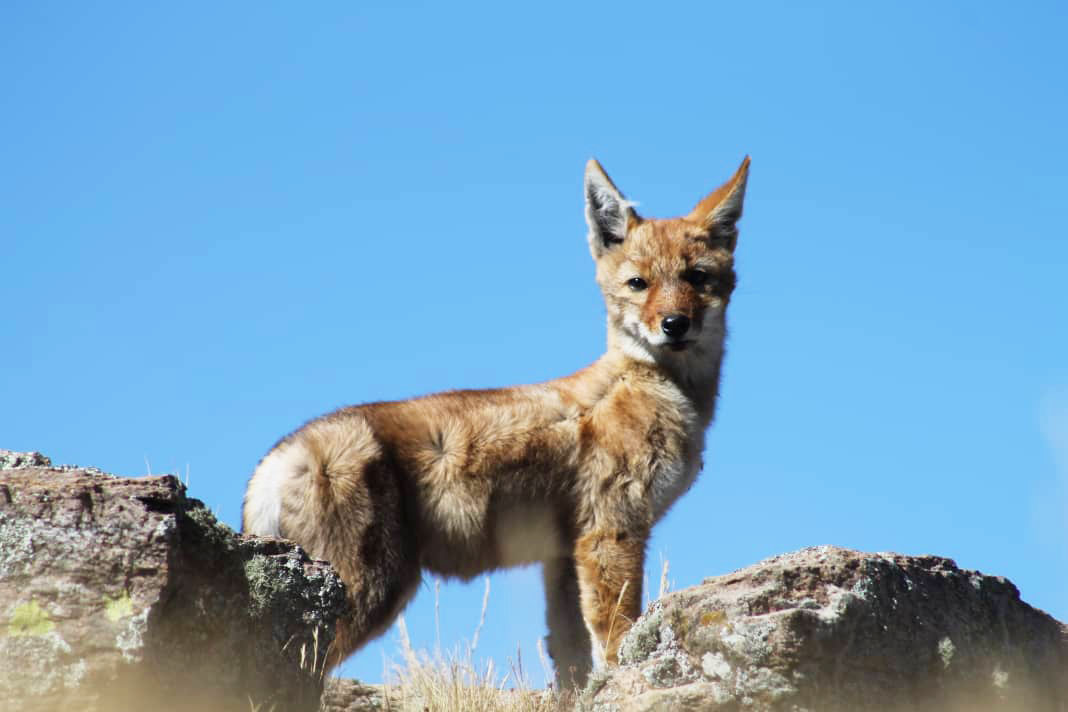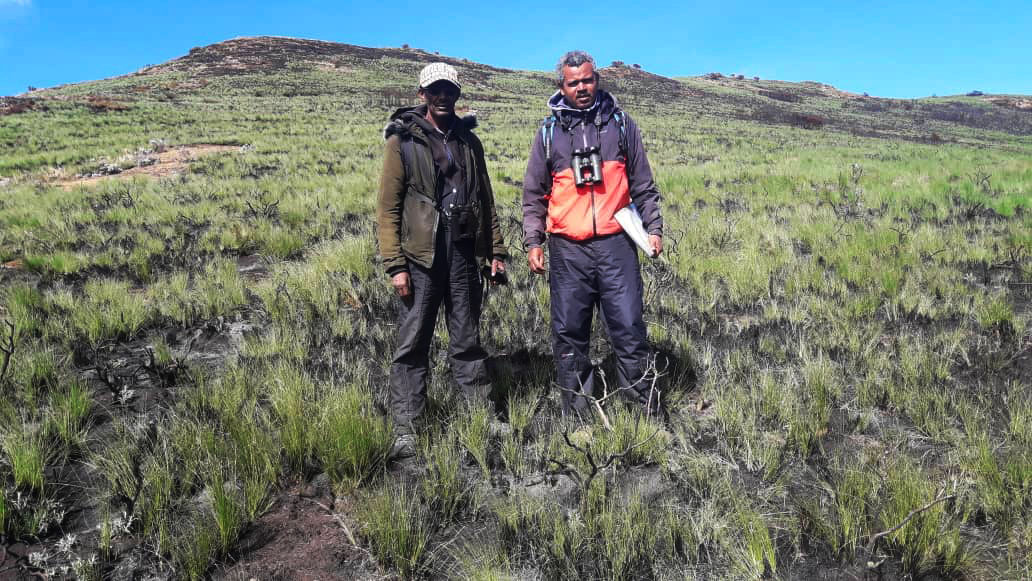News
Endangered Ethiopian wolf pups born in recovering grasslands
Since its inception, WildCRU’s Ethiopian Wolf Conservation Programme has been dedicated to saving the endangered Ethiopian wolf (Canis simensis) from extinction, and protecting its Afroalpine home. Found only in a few isolated mountain enclaves in Ethiopia, the 500 or so remaining wolves face overwhelming pressure from habitat loss and the spread of disease by domestic dogs.
Under normal circumstances, EWCP’s Wolf Monitors regularly traverse the highlands on foot or horseback to gather crucial data on the animals, their behaviour and health; however recent conflict throughout the north of the country has meant the suspension of field operations for the safety of staff. With the situation now stabilising, a cautious resumption of activities is underway in some of the national parks and protected areas the wolves inhabit.
Roughly 250km north of Addis Ababa is the Menz Guassa Community Conservation Area, on the edge of the Rift Valley. A small plateau in the Amhara region, Menz Guassa is home to many of Ethiopia’s endemic species and swathed in lush guassa (Festuca spp.) grasses that give the protected area its name. Just a few months ago, at the height of the conflict, these rich grasslands were ravaged by fire and the need to assess the status of the wolves grew even more urgent. With the situation now more settled, EWCP monitors Mengistu Birhan and Talageta Wolde-Selassie visited Menz Guassa in the hopes of locating three wolf packs known to them: Regreg, Sefed Meda and Chichira Meda.
Fortunately, despite the widespread burning, the grasslands are already filled with shoots of new growth and the habitat is clearly recovering rapidly. Guassa is a key source of food and shelter for many small rodent species – a significant component of the Ethiopian wolf’s diet – and its regeneration is key to the health of this biodiversity-rich environment. Mengistu and Talageta then not only located the three packs but were able to confirm that all have bred this season: they spotted two pups, just under three months old, stretching their legs in the early morning outside the den of the Chichira Meda pack. Later in the day they found another three pups that had been born around the same time to the Sefed Meda pack, seen relaxing and exploring their environment under the watchful eye of an adult.
The news is extremely welcome after months of uncertainty, and a promising outcome for this population of endangered Ethiopian wolves.







